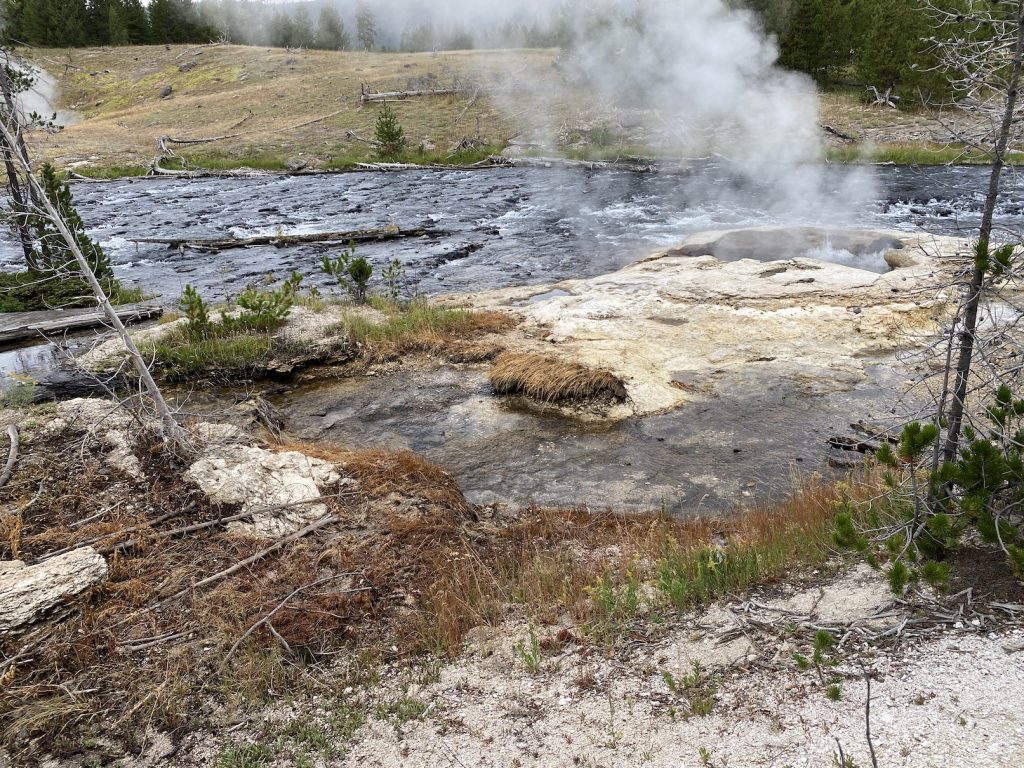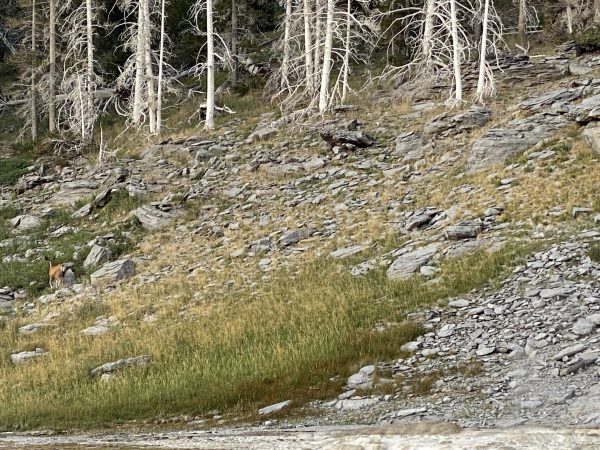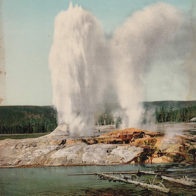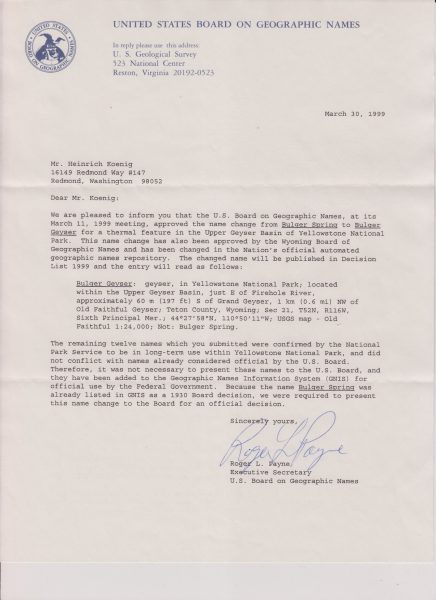Now that the Wuhan Bat Cooties panic is going the way of tulipmania, those who didn't visit the park last year are returning and determined to pickup where they left off. Last year's geyser gazing was nice and quiet for the most part, because there wasn't the usual competition to be the center of attention. ("Switch to five" was not the most frequent heard radio phrase, for example.)
This year it seems that people are determined to turn GeyserTimes into a form of Twitter, and to treat their observations as some sort of GeyserGame, where the goal is not to report accurate and useful information, but to be First! to report every big geyser, and to add their opinions on every obscure geyser and spring whose name they just learned last week. Do all that enough times, and it appears people think you get to level up to Geyser Guru.
Worse, some seem to think of their reports as a substitute for Twitter. We are seeing more and more reports of non-geyser animal encounters and other such incidents which should have no place in a database of geyser activity. Or they are using it to report the status of a geyser because there are no other easy places to let people know that something didn't erupt overnight or in the last hour. Reporting "Bijou ie" used to be a joke told while sitting at Grand. Now we have people logging it without any context, which makes it is just noise. And we don't need half a dozen people to "confirm" an eruption of Beehive in the middle of the day. Or a comment on every Fountain eruption about how this one is the most beautiful eruption ever.
The offenders aren't just new people, where ignorance would be a plausible excuse. Long time contributors can be some of the worst offenders. Exploiting bugs in the database software to be First!, for example, or using the database as a substitute for a written logbook or for weblog postings. (By the way, why exactly is it critically important to shout out on the radio a geyser the second it starts, when the eruption only gets logged to the minute?)
GeyserTimes does have a detailed page laying out "how" to report activity. It's hidden away. But what it doesn't have are pages on "what" and "why". What should be reported and what shouldn't be reported, and why you should or should not report something you see.
Another big problem is that the owners of GeyserTimes seem unwilling or unable to enforce any standards. There's no evidence that they are attempting to keep people focused on the purpose of the database.
If you do object to some of the more egregious entries by using the only feedback method available to users, the owners will call you "an ass", but not to your face. When called on this, they hide behind "decisions of the team" to never respond, demonstrating an unwillingness to deal with problems on their site. They also seem to be unable or unwilling to answer inquiries about using the database from an application, or reports of website bugs, so their lack of communication seems to be a systemic problem. So much for encouraging communications.
Solutions? First, better communications between the GeyserTimes owners and their users would help a lot. Answer those emails, and provide a way for users to directly inform observers of problems. Admit that the database gets enough use that there needs to be active administration to catch problematic reports before they sit there for hours uncorrected.
But there could be more. Perhaps the owners of GeyserTimes, or maybe GOSA, should put in the effort to setup moderated forum(s) for people to discuss the activity they see, and a place to report the status of various features, independent of the database. A place where those who really care if Tilt's "Baby" is empty recently can quickly see what others have reported. A place for "unattended" reports from Fan & Mortar. The same for reports for New Crater/Steamboat, now that it has reverted to 1980s mode. A place that will be useful when Giant reactivates, in reporting Grotto marathon status and Bijou pauses. A place for reporting non-geyser incidents and activities. In other words, a place for ephemera that is inappropriate for a permanent database. There seems to be a demonstrated demand for it.
Another solution would be to separate out the GeyserGaming aspect, and give the GeyserGamers what they want. Create separate apps whose purpose is to pander to the GeyserGamers who only care about reporting what they see. Give these entries lesser precedence over those entries from observers actually including observations, until they "level up" enough to be trustworthy. (An example of the difference is that GeyserGamers can't be bothered to put in a duration or height estimate. Doing that would require either waiting until the eruption is over to submit the entry, or to go back in and edit/update the entry.)
In the late 1980s I worked up a "geyser rating system" where I tried to apply objective criteria (duration, interval, height) in ranking geysers. It was mostly successful, with a few weirdnesses. (For example, Old Faithful and Uncertain came out similarly ranked.) Recently I tried updating this, adding some other criteria like accessibility. I might post that information later, in case anyone is interested in stealing this idea and actually implementing it. One problem with any such system is that ratings would change often, as dormancy is a large factor in scoring.
The GeyserGame could also be a paid addon to the GeyserTimes app(s) where the proceeds can be used to compensate the needed moderators and administrators. Or allow a few submissions for free, but you gotta pay for unlimited access. (And paying should count toward scoring, or at least provide evidence that the observer is serious in reporting.)




